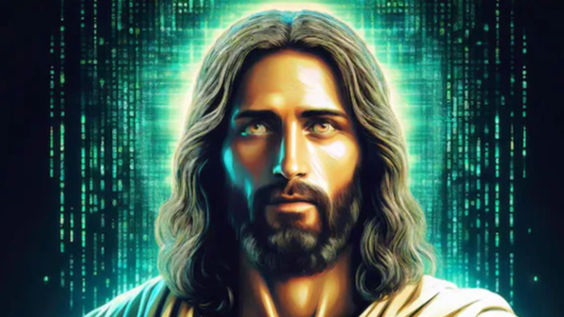A church in Switzerland has embraced technology by introducing an AI-powered version of Jesus Christ as a modern approach to confession. This initiative, part of an art project called Deus in Machina (God in a Machine), aims to provide visitors with spiritual advice using artificial intelligence. The project combines traditional Christian teachings with technological innovation to connect with the faithful in a unique way.
How AI Jesus Works
Visitors entering the confessional booth find a screen displaying a digital representation of Jesus. This AI listens to their concerns and responds with advice rooted in New Testament teachings. The model, developed with Lucerne University’s Immersive Realities Research Lab, ensures the guidance aligns with Christian values while offering a novel spiritual experience.
Blending Faith with Technology
Theologians from St. Peter’s Chapel, who spearheaded the project, see this initiative as both exciting and ethically complex. They believe AI has the potential to enhance spiritual practices but admit it cannot entirely replace human understanding. While AI Jesus provides thoughtful responses, there are occasional lapses that highlight the limitations of technology in addressing profound spiritual matters.
Visitor Reactions to AI Jesus
People who have interacted with AI Jesus have shared mixed reviews. Some feel the advice is insightful and meaningful, while others find it lacks the depth of a human spiritual adviser. These varying responses reflect the experimental nature of the project and raise questions about whether AI can truly replicate the empathy and understanding of a human connection.
Expanding AI’s Role in Religion
The introduction of AI Jesus has sparked broader discussions about the role of artificial intelligence in religious settings. Experts are exploring ideas such as immersive digital universes populated by AI characters. On platforms like Friend.com, users can act as counselors to AI personas, while chatbots like Jesus AI and Ask Jesus allow individuals to have conversations with virtual representations of Christ.
Ethical Challenges and Future Prospects
The use of AI in spirituality has raised ethical concerns. Religious leaders and tech firms, including IBM, are working to create guidelines that ensure AI applications align with moral principles. While AI Jesus demonstrates the possibilities of integrating technology into religious practices, it also raises critical questions about the limits and implications of such innovations in faith-based contexts.
The project highlights a fascinating intersection of tradition and modernity. Whether AI Jesus represents a meaningful new approach to spirituality or a technological experiment with inherent flaws, it opens the door to further exploration of how faith and technology can coexist.
Also Read: Artificial Intelligence: Is it going to replace human creativity?





















